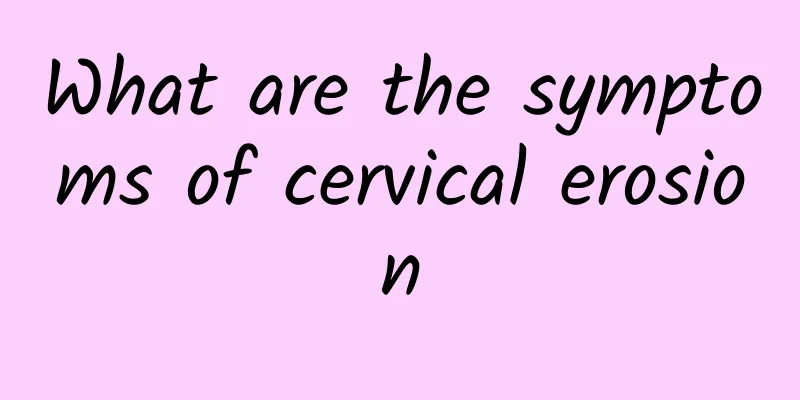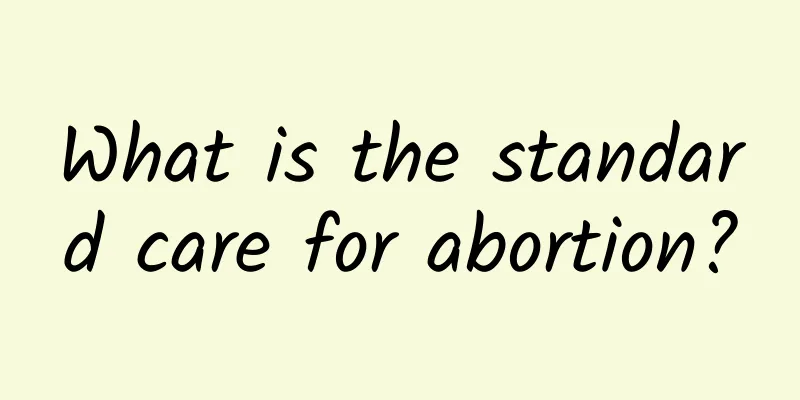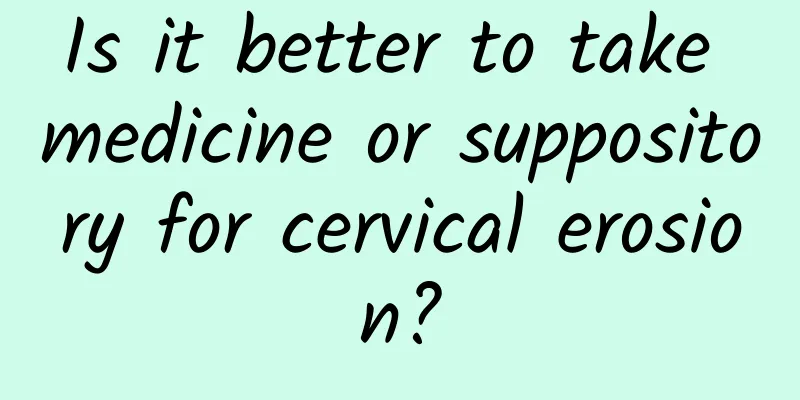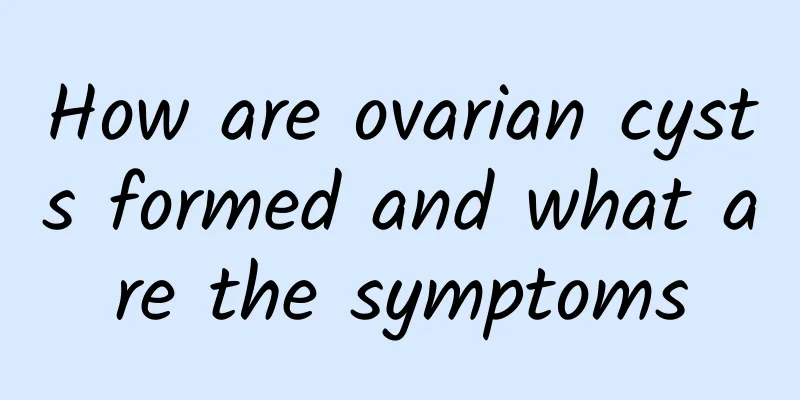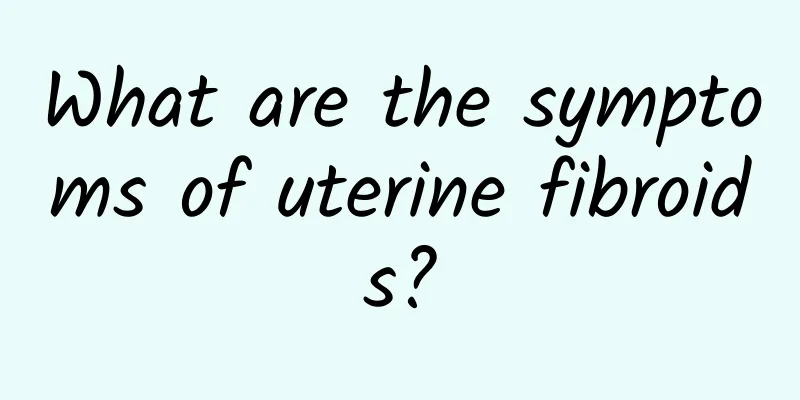Detecting chronic pelvic inflammatory disease can help you recover faster!

|
Pelvic inflammatory disease can be clinically divided into acute and chronic. If acute pelvic inflammatory disease is not treated and is repeatedly delayed, it will cause chronic pelvic inflammatory disease. I believe many women want to know about the treatment of chronic pelvic inflammatory disease. The following is a detailed introduction to the treatment of chronic pelvic inflammatory disease. I hope that women suffering from chronic pelvic inflammatory disease can go to the hospital for diagnosis and treatment as soon as possible. Detecting chronic pelvic inflammatory disease can help you get better faster! The treatments for chronic pelvic inflammatory disease are as follows: 1. Physical therapy: In order to make the inflammation subside as soon as possible, local warming method is usually used to promote blood circulation around the pelvic cavity. At this time, if it is combined with drug treatment, it can accelerate the body's absorption of the drug and give full play to the medicinal properties. It should be noted that physical therapy usually requires going to the hospital with special mechanical equipment for treatment, which is reliable. 2. Surgical treatment: If you go to the hospital for a checkup and find that chronic pelvic inflammatory disease has become more and more serious, and the surrounding organs have been adhered together, then ordinary treatment is no longer effective. At this time, if you start using anti-inflammatory drugs, because those organs have been adhered together and cannot enter, you should start considering using surgical treatment to completely cure it. However, you must pay attention to maintenance after the operation to avoid wound infection. In order to avoid diseases, women must improve their own resistance. If the resistance is too low, even if chronic pelvic inflammatory disease is cured, there is a possibility of recurrence. Therefore, after treatment, you should not only pay attention to your eating habits, but also pay attention to exercise, insist on exercising, and improve your immunity. I hope this popular science article can help everyone. I hope that female friends can learn more about gynecological knowledge, which will be good for themselves. Active treatment of pelvic inflammatory disease is very necessary, but at the same time, in order to better help the recovery of pelvic inflammatory disease, related dietary conditioning is also an indispensable nursing step. We know that there are many food contrabands in chronic pelvic inflammatory disease, and if you are not careful, it can slightly aggravate the condition. What should you not eat for chronic pelvic inflammatory disease? Let's take a closer look at it together. What should you eat for chronic pelvic inflammatory disease? Avoid greasy food Pelvic inflammatory disease is mainly caused by bacteria and pathogens that invade the body, causing a series of symptoms. For patients with chronic pelvic inflammatory disease, eating greasy food may cause the food to be mentioned to decline, affecting the patient's spleen and stomach function. If you do not pay attention to it for a long time, they may cause the patient's physical fitness to decline and may cause other diseases. What to eat for chronic pelvic inflammatory disease? No hot nutritious food The main cause of chronic pelvic inflammatory disease is heat in the system. Therefore, eating hot tonic foods will aggravate the condition and may cause women's temperature to rise, thick leucorrhea, yellow hair, etc. Because of this disease, it is best not to eat such food. What to eat for chronic pelvic inflammatory disease? Avoid spicy food Spicy food can cause inflammatory diseases to worsen. For patients who do not pay attention to their diet, it is important to pay attention to eating spicy food quickly to avoid causing harm to the pelvic cavity, causing pelvic congestion and progression of pelvic inflammatory disease. A light diet is necessary for chronic pelvic inflammatory disease. The above is an introduction to what you should not eat for chronic pelvic inflammatory disease. Active dietary conditioning not only has a positive protective significance for patients, but also can reduce the stimulation of the disease caused by incorrect diet, which causes the disease to worsen. In short, after pelvic inflammatory disease occurs, you must eat less of the above foods, which is very helpful in reducing the stimulation of the disease. |
<<: Women must know: Gynecological inflammation can be transmitted through these two ways!
>>: What causes lower abdominal pain? Know these and understand your physical condition in time
Recommend
The treatment of ovarian cysts should be based on the actual situation of the patient
For women who want to give birth, ovarian cysts c...
Women should fully understand the causes of cervical erosion
At present, the incidence of cervical erosion is ...
What is the main cause of dysmenorrhea?
Dysmenorrhea is also a type of gynecological dise...
Can menopause be cured?
The pace of life of women nowadays is very differ...
Questions about threatened miscarriage
There are more and more troubles, and the spiritu...
What foods can be used to treat uterine fibroids? What foods and fruits are uterine fibroids afraid of?
Uterine fibroids are a common gynecological disea...
Why does premature ovarian failure occur?
Why does premature ovarian failure occur? Prematu...
What Chinese medicine can be used to treat premature ovarian failure
What Chinese medicine can be used to treat premat...
What are the typical symptoms of uterine cysts
What are the typical symptoms of uterine cysts? U...
How should bacterial vaginosis be treated? There are 3 treatment methods
Before treating bacterial vaginosis, vaginal disc...
Experts on home remedies for adnexitis
What are the home treatment methods for adnexitis...
How to take care of amenorrhea?
Some women in life have amenorrhea at an early ag...
What are the specific symptoms of ectopic pregnancy?
Among women's gynecological diseases, ectopic...
The clinical manifestations of dysmenorrhea need to be explained carefully
Do you know the clinical manifestations of dysmen...
How to relieve menstrual pain and insomnia
How to relieve menstrual pain and insomnia? Menst...

